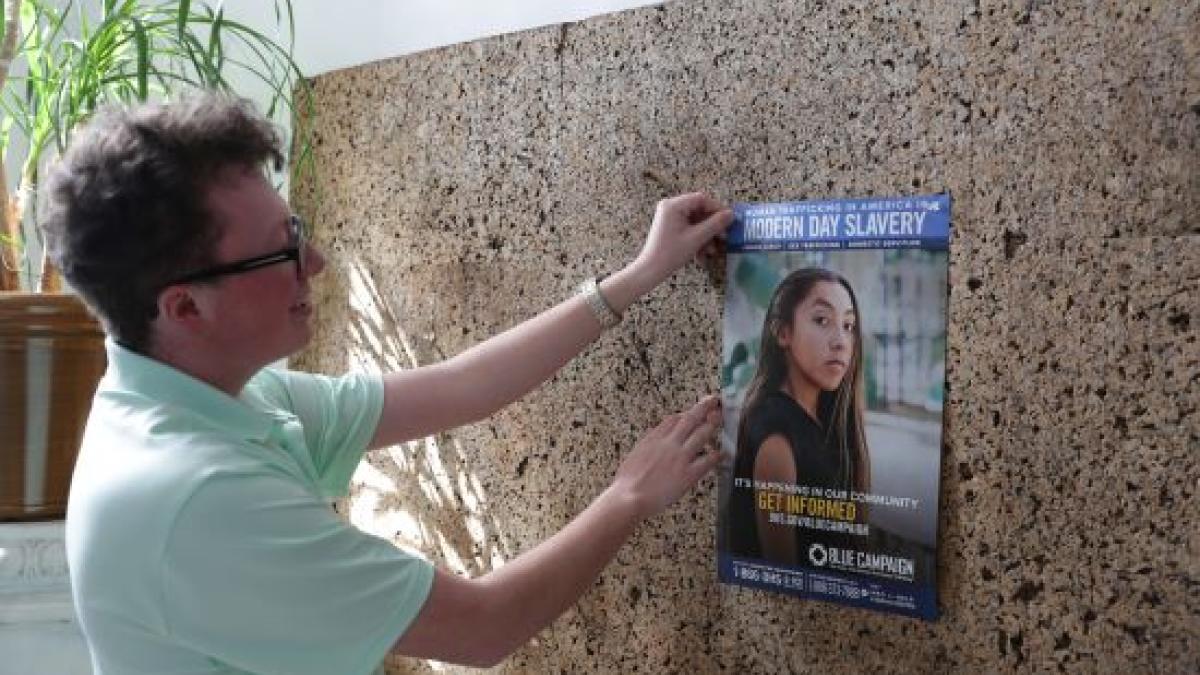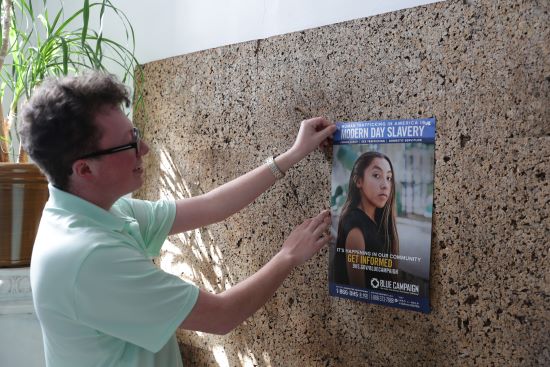Mercyhurst students launch anti-human trafficking campaign

 Human trafficking in Erie: how real is it?
Human trafficking in Erie: how real is it?
It may not be blatant. It may not be brandished all over the nightly news. But that doesn’t mean it isn’t happening, and students at Mercyhurst University want to do something about it.
In their ongoing effort to combat human trafficking, Mercyhurst students have worked on numerous projects, some at home, some in other countries. This month, they take to the streets of Erie County to distribute posters and related informational pieces to heighten awareness of the prolific social problem.
Junior Scott Stewart, a Business and Competitive Intelligence major from Warren, joined the university’s Anti-Human Trafficking Club to learn more about trafficking in the U.S. and other nations, a commitment that has instilled in him the urge to try and make a difference.
“The awareness campaign is very important as it allows members of the community to be mindful of human trafficking and to identify key signs of trafficking,” he said. “The posters will be hung up at truck stops, gas stations, and local businesses.”
Club member Elena Calleri, a junior Intelligence Studies major from Cleveland, shared similar sentiments: “If we tell people about warning signs, they rest in the back of someone’s mind, but that doesn’t necessarily mean they will recognize the signs in a real situation. However, if we put the posters up and every single day the community sees these posters and the warning signs and help resources, it will become more top of mind. If we can get this information ingrained into the minds of the community, then we can further save and protect the children in our lives.”
Approximately 10 students will be distributing hundreds of posters, furnished by the U.S. Department of Homeland Security and Truckers Against Trafficking. They will be joined by Deb Davies, assistant professor of Intelligence Studies and a former CIA operations officer.
Since 2019, Davies has led the Erie community’s Anti-Human Trafficking Coalition Force, designed to connect local groups working in the field toward a collective approach. Its membership totals upward of 150 people. She also advises Mercyhurst’s student club. Besides supporting the work of the coalition, this group analyzes human trafficking issues as projects for NGOs and creates and conducts programs to build awareness.
Although it’s not often obvious, there are signs that could help people recognize victims of human trafficking. Some of the informational materials the students will share locally highlight those signs:
- Does the person show signs of physical abuse, restraint, or confinement?
- Do they appear to be deprived of food, sleep, or other necessities?
- Do they appear to be coached on what to say?
- Do they lack personal possessions?
- Do they act fearful, angry, or standoffish?
As a form of modern-day slavery, traffickers use force, fraud, or coercion to control victims for the purpose of labor or sexual services against their will. Often, it’s a painstakingly slow, furtive exercise. Moreover, some victims have been so well groomed that they don’t even realize they are being trafficked. They see it as something they have chosen to do.
For more information on the anti-human trafficking groups at Mercyhurst, contact Davies at ddavies@mercyhurst.edu.
PHOTO: Student Scott Stewart hangs an Anti-Human Trafficking poster, one of hundreds that will be posted across Erie County this month.